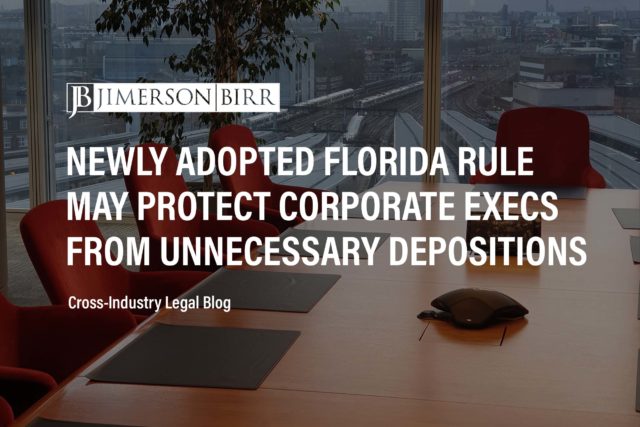How does employment law affect schools?
Employment law significantly impacts schools in various ways, governing the relationship between educational institutions and their employees. One crucial aspect is the hiring process, where schools must adhere to anti-discrimination laws to ensure fair treatment and equal opportunity for all candidates. This includes regulations concerning race, gender, age, disability, religion, and other protected characteristics. Schools must carefully structure their recruitment and selection processes to avoid any form of discrimination and ensure that they hire the most qualified individuals.
Once hired, employment law governs the terms and conditions of teachers’ and staff members’ contracts, including wages, working hours, benefits, and leave entitlements. Schools must comply with minimum wage laws, overtime regulations, and other labor standards to ensure employees receive fair compensation for their work. Additionally, they must provide a safe working environment and adhere to health and safety regulations to protect employees from workplace hazards.
Another crucial area influenced by employment law is employee rights and responsibilities. Schools must inform employees of their rights regarding grievances, disciplinary procedures, and termination processes. Employment contracts should clearly outline expectations, job responsibilities, and procedures for addressing conflicts or performance issues. Schools must also respect employees’ rights to freedom of speech and association, balancing their professional obligations with personal freedoms. Failure to adhere to these regulations can result in legal liabilities, fines, and damage to the school’s reputation.
Need help regarding education law? Schedule your consultation today with a top education attorney.
In Florida, which employment laws apply to schools?
In Florida, schools are subject to a combination of federal and state employment laws, as well as any relevant local ordinances. Some key federal employment laws that apply to schools in Florida include:
- Fair Labor Standards Act: This federal law sets minimum wage, overtime pay, recordkeeping, and child labor standards for employees. Schools must comply with these regulations when determining wages and working hours for their staff.
- Title VII of the Civil Rights Act of 1964: Title VII prohibits employment discrimination based on race, color, religion, sex, or national origin. Schools in Florida must ensure equal employment opportunities and refrain from discriminatory practices in hiring, promotion, and other employment decisions.
- Florida Minimum Wage Act: This law establishes the Florida’s wage rate, which differs from that of the federal minimum wage. Schools must pay employees at least the state minimum wage rate, which is periodically adjusted.
What are common issues regarding employment law in schools that lead to litigation?
Several common issues regarding employment law in schools can lead to litigation. These issues often arise due to misunderstandings, miscommunication, or failure to comply with legal requirements. Some of the most prevalent issues include:
- Discrimination and Harassment: Allegations of discrimination or harassment based on protected characteristics such as race, gender, age, religion, or disability can lead to litigation. Schools must ensure a workplace free from discrimination and harassment, promptly investigate any complaints, and take appropriate corrective action if necessary.
- Wrongful Termination: Allegations of discrimination or harassment based on protected characteristics such as race, gender, age, religion, or disability can lead to litigation. Schools must ensure a workplace free from discrimination and harassment, promptly investigate any complaints, and take appropriate corrective action if necessary.
- Wage and Hour Violations: Failure to comply with wage and hour laws, such as minimum wage requirements, overtime pay, or misclassification of employees as exempt from overtime, can lead to litigation. Schools must accurately record employees’ work hours, pay them accordingly, and follow applicable federal and state labor standards.
- Retaliation Claims: Retaliation against employees for engaging in protected activities, such as filing complaints, reporting violations of law, or participating in investigations, can result in litigation. Schools must refrain from retaliatory actions and ensure employees feel comfortable raising concerns without fear of reprisal.
- Breach of Contract: Disputes over employment contracts, including terms of employment, compensation, benefits, or job responsibilities, can lead to breach of contract claims and litigation. Schools must ensure that employment contracts are clear, enforceable, and followed as agreed upon by both parties.
To determine whether your unique situation may necessitate litigation, please contact our office to set up your initial consultation.
What steps should schools take to minimize the risk of litigation over employment law?
To minimize the risk of litigation over employment law, schools should take several proactive steps:
- Develop Clear Policies and Procedures: Schools should establish comprehensive policies and procedures governing all aspects of employment, including hiring, compensation, benefits, performance evaluations, discipline, and termination. These policies should be clearly communicated to employees and consistently applied across the organization.
- Provide Employee Training: Regular training sessions should be conducted to educate employees and supervisors on their rights and responsibilities under relevant employment laws, as well as the school’s policies and procedures. Training topics may include anti-discrimination and harassment prevention, proper handling of FMLA requests, wage and hour compliance, and confidentiality requirements.
- Conduct Thorough Hiring Processes: Schools should implement fair and transparent hiring processes to ensure equal opportunity and minimize the risk of discrimination claims. This includes using standardized job descriptions, conducting unbiased interviews, and documenting hiring decisions based on legitimate job-related criteria.
- Respond Promptly to Complaints: Schools should establish procedures for employees to report any concerns or complaints related to employment issues, such as discrimination, harassment, retaliation, or violations of policy. Complaints should be taken seriously, promptly investigated, and addressed through appropriate channels, with confidentiality maintained to the extent possible.
- Conduct Regular Compliance Audits: Schools should periodically review their policies, procedures, and practices to assess compliance with employment laws and identify any areas of concern or potential risk. Compliance audits can help proactively address issues before they escalate into legal disputes.
Frequently Asked Questions
What resources are available to help schools navigate employment law?
Schools can access various resources to help them navigate employment law, including legal counsel specializing in education law or employment law, government agencies such as the U.S. Department of Labor or Equal Employment Opportunity Commission (EEOC), professional associations for educators, and online resources providing guidance and information on relevant laws and regulations.
What should schools do if they receive a complaint or face litigation related to employment law?
Schools should take any complaints or litigation related to employment law seriously and respond promptly and appropriately. This may involve conducting an internal investigation, seeking legal counsel, addressing any issues identified, and taking steps to prevent similar problems in the future.
What are the requirements for providing reasonable accommodations to employees with disabilities?
Schools must provide reasonable accommodations to employees with disabilities to enable them to perform essential job functions, unless doing so would impose an undue hardship on the organization. Accommodations may include modifications to work duties, schedules, or facilities.
Have more questions about employment law?
Crucially, this overview of employment law does not begin to cover all the laws implicated by this issue or the factors that may compel the application of such laws. Every case is unique, and the laws can produce different outcomes depending on the individual circumstances.
Jimerson Birr attorneys guide our clients to help make informed decisions while ensuring their rights are respected and protected. Our lawyers are highly trained and experienced in the nuances of the law, so they can accurately interpret statutes and case law and holistically prepare individuals or companies for their legal endeavors. Through this intense personal investment and advocacy, our lawyers will help resolve the issue’s complicated legal problems efficiently and effectively.
Having a Jimerson Birr attorney on your side means securing a team of seasoned, multi-dimensional, cross-functional legal professionals. Whether it is a transaction, an operational issue, a regulatory challenge, or a contested legal predicament that may require court intervention, we remain tireless advocates at every step. Being a value-added law firm means putting the client at the forefront of everything we do. We use our experience to help our clients navigate even the most complex problems and come out the other side triumphant.
If you want to understand your case, the merits of your claim or defense, potential monetary awards, or the amount of exposure you face, you should speak with a qualified Jimerson Birr lawyer. Our experienced team of attorneys is here to help. Call Jimerson Birr at (904) 389-0050 or use the contact form to schedule a consultation

We live by our 7 Superior Service Commitments
- Conferring Client-Defined Value
- Efficient and Cost-Effective
- Accessibility
- Delivering an Experience While Delivering Results
- Meaningful and Enduring Partnership
- Exceptional Communication Based Upon Listening
- Accountability to Goals










